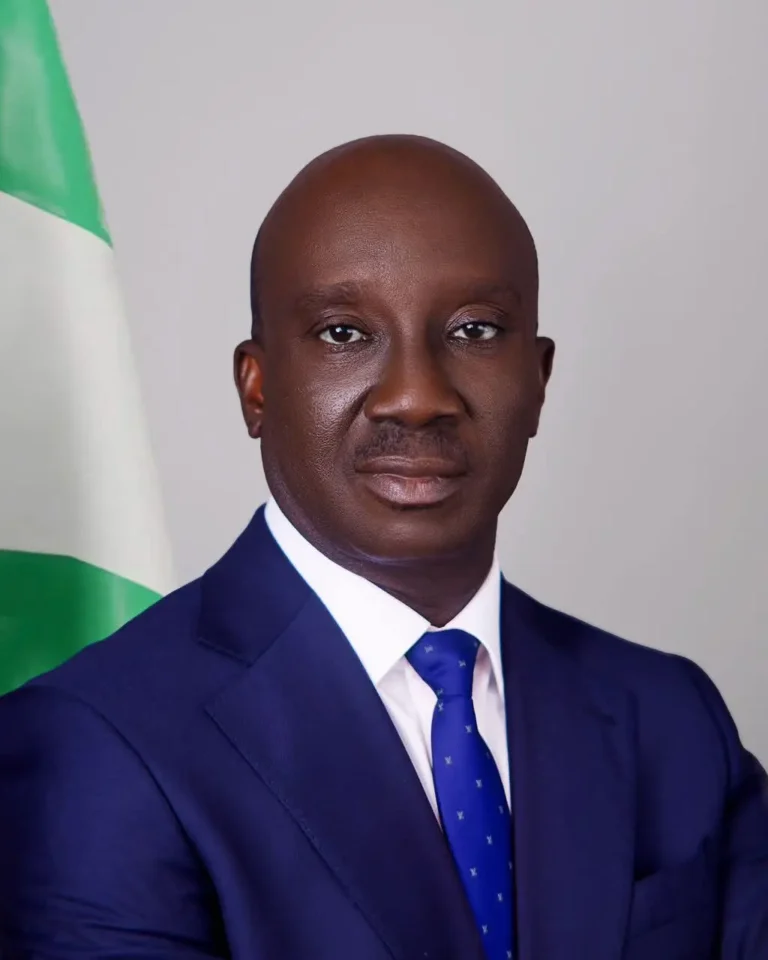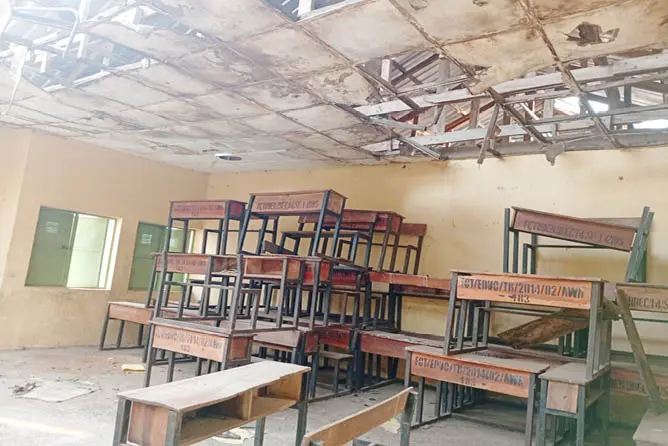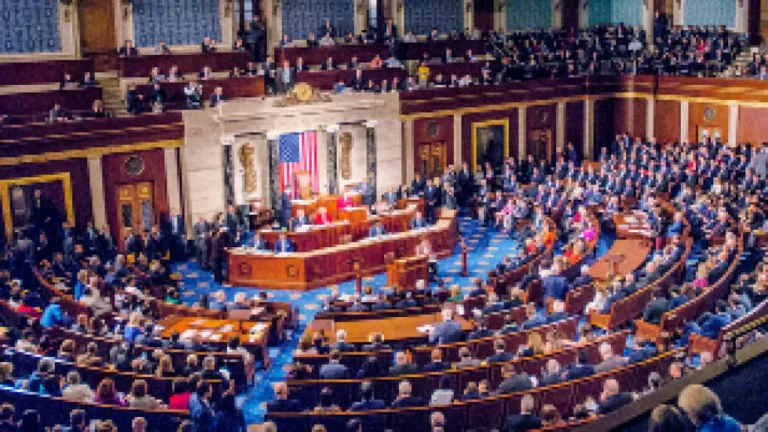
Several senators on Wednesday raised concerns about President Bola Ahmed Tinubu’s directive to withdraw police personnel attached to Very Important Persons (VIPs), warning that the move could expose them to grave security risks.
They raised the concerns during a debate at plenary on the escalating insecurity across the country, triggered by a motion moved by Senator Oyelola Yisa Ashiru on the need for urgent federal intervention.
President Bola Ahmed Tinubu recently ordered the withdrawal of police officers providing security for VIPs amid escalating security challenges in the country.
He also directed police authorities to redeploy them to concentrate on their core duties, a move that mandated the Special Protection Unit of the Nigeria Police Force to order all officers attached to VIPs and beats nationwide to return to their bases.
Contributing to the debate, Senator Aliyu Magatakarda Wamakko (Sokoto North) said the withdrawal of police escorts from top government officials and other VIPs was ill-timed, given the worsening security situation across the country.
According to him, public office holders remain high-value targets for terrorists, kidnappers and other criminal gangs, making the decision potentially dangerous.
“Our lives are in danger. At a time when criminals are becoming more desperate and attacks are on the rise, withdrawing police protection from senators and other VIPs exposes us to avoidable risks. This policy needs to be reviewed,” Wamakko said.
Similarly, Senator Tahir Monguno (APC, Borno North), said withdrawing police protection from public officials at a time of heightened criminal activities would put their lives at serious risk.
He said senators and other VIPs have become prime targets for terrorists, kidnappers and armed gangs, making the directive “dangerous and poorly timed.
“The withdrawal of security from VIPs will expose many of us to unnecessary danger. The security situation is deteriorating. Kidnappers and criminals are becoming more emboldened. Removing police protection now is like opening us up to attacks.”
Other senators echoed similar concerns, arguing that while the police reform directive may have been well-intentioned, it failed to account for the realities of Nigeria’s current security challenges.
Some lawmakers noted that many senators frequently travel to vulnerable areas within their constituencies and rely on their police security teams for safety, especially during oversight functions, community engagements and political activities.
Following the intense debate, the Senate resolved to engage the presidency and the police authorities to reconsider or adjust the withdrawal policy in line with current national security realities.
More details are expected as the Senate leadership meets with the president to formally communicate its security concerns.
In the House of Representatives, former deputy speaker, Ahmed Idris Wase (Plateau), called for a review of the directive, ordering the withdrawal of police personnel from VIPs, warning that the measure could expose public officials to heightened security risks amid rising kidnapping incidents across the country.
Speaking during a special session of the House on insecurity, Wase said while the intention behind the policy may be laudable, its implementation must be clearly categorised to avoid endangering individuals who face real and escalating threats.
He noted that criminals, including kidnappers and bandits, have increasingly targeted politicians and other public office holders, citing a recent video in which a suspected kidnapper vowed to attack political leaders.
He noted that criminals, including kidnappers and bandits, have increasingly targeted politicians and other public office holders, citing a recent video in which a suspected kidnapper vowed to attack political leaders.
He said many public officials, especially those residing or travelling outside Abuja, are already living under severe insecurity, stressing that the withdrawal of security aides without proper risk assessment would leave them vulnerable.
According to him, travelling on major highways has become extremely dangerous, with kidnapping occurring “virtually every day.”
He added that he personally feels unsafe travelling between Abuja and Jos after 6pm due to repeated attacks along the route.
Wase called for a review of the directive and that the categorisation of those exempted from the withdrawal is clearly defined.
Kidnappers to face death penalty
The Senate also declared that all kidnapping-related offences be classified as acts of terrorism.
It resolved that kidnappers should face the death penalty (maximum sentence) once the relevant law is amended, and that the courts should have no discretion to reduce the sentence or substitute with a fine.
The Red Chamber mandated that a formal amendment bill, to reflect these changes in the law, be drafted and presented “in the shortest possible time.”
Earlier during the debate, Senator Francis Fadahunsi (Osun East) urged the Senate to criminalise negotiations with kidnappers.
Senator Garba Maidoki (Kebbi South) said authorities know the identities and hideouts of many bandits but questioned why the military has failed to apprehend them.
Senator Abdul Ningi (Bauchi Central) said kidnappers must face the stiffest penalties.
“Kidnapping must be branded a terrorist act and must carry the death penalty. Let’s look inwards and get it right,” Ningi said.
Senator Sadiq Umar (Kwara North) said Nigeria is facing an “existential threat” and all hands must be on deck to defeat terrorism.
Senate probes soldiers’ withdrawal before Kebbi abduction
The Senate also mandated its security-related committee to investigate the alleged recent security lapses, including the withdrawal of troops from a vulnerable area in Kebbi State before a school abduction and the killing of a high-ranking officer.
The Senate also directed the launch of “intelligence-driven operations,” including aerial surveillance, cross-state collaboration, and community-based intelligence systems.
The red chamber urged the establishment of a new Joint Task Force (JTF), specifically for the Kwara–Kogi corridor, with forward operating bases in areas identified as vulnerable.
The Senate resolved that its leadership would brief President Bola Ahmed Tinubu on the resolutions and proposed action plan.
It also assured its commitment to follow up within one week, with reconstituted committees and security agencies required to report on actions taken so far.
Lawmakers consider review of firearms laws
Senators also considered a review of the country’s firearm laws to permit responsible citizens to own or bear ammunition.
The lawmakers adopted the proposal through a voice vote conducted by the Senate President, Godswill Akpabio.
The proposal was one of the prayers in a motion sponsored by Oyelola Ashiru (APC, Kwara South), on the rising cases of kidnapping in the country, particularly in Niger, Kwara and Kebbi, where there were security challenges in the last two weeks.
In his motion, Mr Ashiru, who is the deputy Senate leader, complained about the terrorist attack on Christ Apostolic Church, Oke Igan, in Eruku, Kwara State, where three worshippers were killed and 38 others abducted.
States must work with federal agencies to tackle insecurity – Barau
Deputy Senate President, Barau Jibrin, has urged state governments to intensify collaboration with federal security agencies to stem the rising insecurity across the country.
Speaking with journalists on Wednesday at the National Assembly Complex in Abuja, Barau said President Bola Ahmed Tinubu is “working tirelessly” to address insecurity, but stressed that his efforts must be complemented at the subnational level.
“Mr President is doing extremely well, but his efforts must be supported by all Nigerians, state governments, corporate organisations and all citizens,” he said.
“Insecurity is a collective challenge. If others come in to complement the federal government, we will overcome this problem sooner than expected.”
Barau urged states to invest in surveillance infrastructure and other security hardware that federal agencies can deploy to combat threats within their jurisdictions.
“It’s not rocket science. A state can establish facilities to monitor activities in its forests and vulnerable areas. Such support will help the military and other agencies respond faster. If every state adopts this model, we can drastically reduce insecurity in a short time,” Senator Barau said.
He commended the President for cancelling his planned trip to South Africa for the G20 Summit to focus on domestic security concerns, noting that the decision contributed to the successful rescue of abducted victims in Kebbi State.
Senator Barau also addressed the Senate’s resolutions on national security and the planned engagement with the President, saying the Senate leadership would jointly determine the tone of the communication.
“The President is a leader who listens. Whatever the Senate presents will be well received,” he said.
On state police, Barau said the debate should focus less on nomenclature and more on adequately equipping the existing Nigeria Police Force. He maintained that President Tinubu inherited an underfunded police system but has since prioritised improved funding, training and recruitment.
“It is not about the name of the outfit. What matters is training, equipment and funding. The President is already addressing these gaps,” Senator Barau added.
He also confirmed ongoing discussions on amending the Terrorism Act to classify kidnapping as a terrorist offence, describing the move as “interesting and necessary.”
DAILY TRUST.




